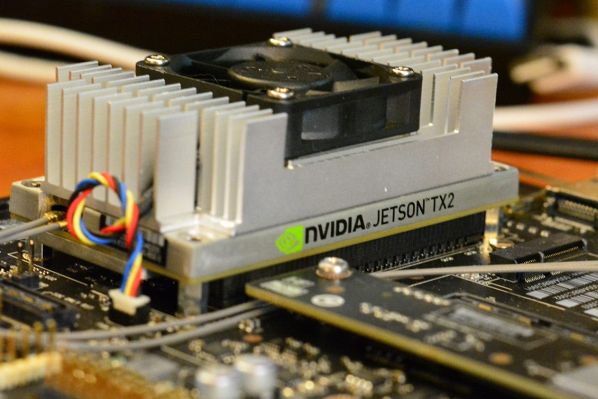This year, shipments of semiconductors and other restricted goods to fuel Russia’s war effort through China and Hong Kong have fallen by a fifth. According to data from the US Department of Commerce, Hong Kong is one of the global hotspots for evading global sanctions.
The transshipment of advanced components, including microelectronics products deemed by the United States and the European Union as likely to be used in the Russian war in Ukraine, through Hong Kong decreased by 28% between January and May, a US Commerce Department official said. In the same period, transshipment of the mentioned articles via mainland China – excluding Hong Kong – decreased by 19%. The U.S. government sees both Hong Kong and China as key global hubs for Russia to source materials for its military, including semiconductors and drone parts. “I think we have some reason to at least be optimistic that we’ve been able to slow down some of that trade,” the official said, but added, “China is still our number one concern.”
The United States and its allies accuse China of supporting Russia’s war in Ukraine, in part by exporting parts and equipment needed by Moscow’s arms manufacturers. The U.S. State Department and Treasury Department have imposed several rounds of sanctions against organizations around the world that have commercial ties to the Russian military, including Hong Kong shell companies that relabeled semiconductors. The decline in illicit flows is due to several factors, including aggressive enforcement by US authorities and cooperation with companies that transit their products. “We are talking to all companies whose products appear on the battlefield,” the official said, without naming names.
The Hong Kong government did not respond to reporters’ questions about the transshipment to Russia, but said “we do not implement and have no legal authority to take measures related to sanctions unilaterally imposed by other countries.” However, under instructions from the Chinese Foreign Ministry, it “vigorously enforces” sanctions imposed by the UN Security Council, including those related to North Korea.
Customs data from C4ADS, a Washington-based global security nonprofit, shows that more than 200 Hong Kong-registered companies shipped nearly $2 billion worth of goods to Russian customers between August and December 2023. The data, outlined in a report by The Committee for Freedom in Hong Kong Foundation (CFHK), showed that $750 million worth of sanctioned goods were shipped, from high-end chips from Nvidia and France’s Vectrawave to lower-end chips from Texas Instruments and Intel. via Hong Kong between August and December 2023. According to the CFHK, some of these restricted goods were supplied to Russian companies.
Nvidia stopped sales to Russia in March 2022 and requires its customers to comply with all applicable US laws. Texas Instruments also “strongly opposes” the use of its chips in Russian military equipment and the illegal diversion of its products to Russia. Intel said it operates in strict compliance with US export regulations and sanctions and holds its suppliers and distributors to the same standards.
“Our research has highlighted a number of cases where Hong Kong-based companies have facilitated the transfer of sensitive technologies and goods, undermining international security and stability,” said lawyer Samuel Bickett, author of the CFHK report. According to customs data from C4ADS in 2023, two shipments from Nvidia – worth $1.58 million and $1.21 million – sent to a Moscow-based company called “Lotos” by a consignor named Malachor Electronics, whose secretarial address is located in a luxurious office building in Hong Kong’s central business district whose address is listed in the United Kingdom, could not be reached for comment.

The Jetson TX2 is currently the most energy-efficient AI supercomputer
Between August and December last year, a total of $17.6 million worth of Nvidia products were shipped to Russia by Hong Kong shippers after trading in countries such as China, Taiwan, Turkey, Thailand, Serbia and the United Arab Emirates. Among the shipments were “Jetson TX2” Edge AI systems, components used in drones discovered by the Ukrainian government on the battlefield are between. “Used Jetsons are available through a number of used channels. Although we cannot track products after they are sold, if we determine that a buyer is in violation of US export controls, we will take appropriate action,” Nvidia spokesman John Rizzo said. Rizzo did not provide details on the About shipments sent to Lotos.
Other high-value shipments included two shipments worth $1 million each of Vectrawave semiconductors labeled as microprocessors. Vectrawave manufactures specialty semiconductors for high-tech communications and defense systems, including radars. According to the CFHK report and an examination of data from the Hong Kong Company Registry, the ease of incorporation and registration of Hong Kong companies has led to the proliferation of shipping and logistics companies and other intermediaries, which have also facilitated limited trade and financial flows with Iran and North Korea. Some of these have been sanctioned by the US authorities.
Journalists’ visits to industrial buildings near Hong Kong’s Kwai Chung container port found only closed offices for shippers named in customs records and company records. One company – Align Trading, the shipper of Vectrawave chips – had an address in a musty room with hundreds of Hong Kong company registration letters in its mailbox. Li Yanqing, Align’s China director, is registered in Jiujiang, southern China, and could not be reached.
Source: sg.hu


